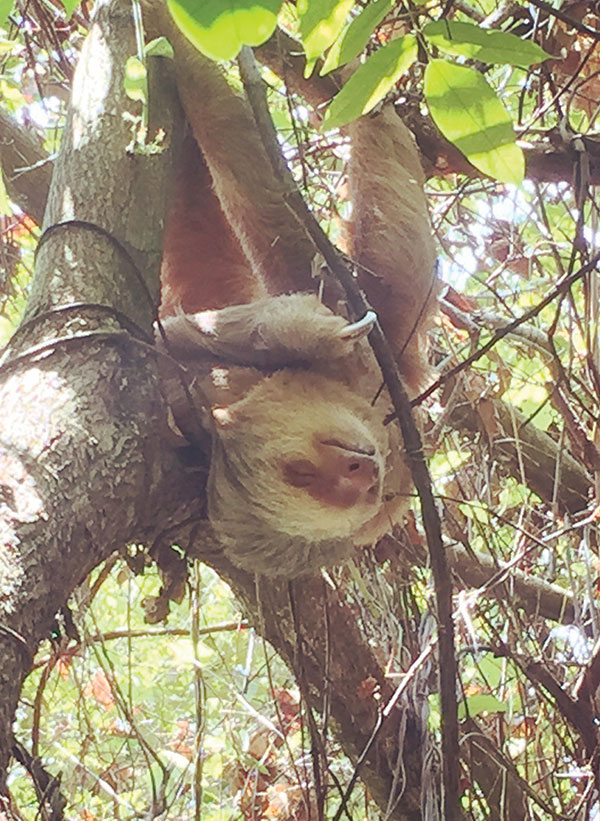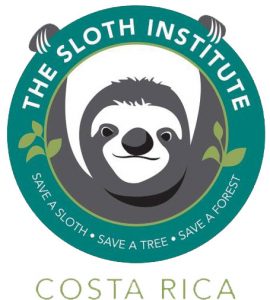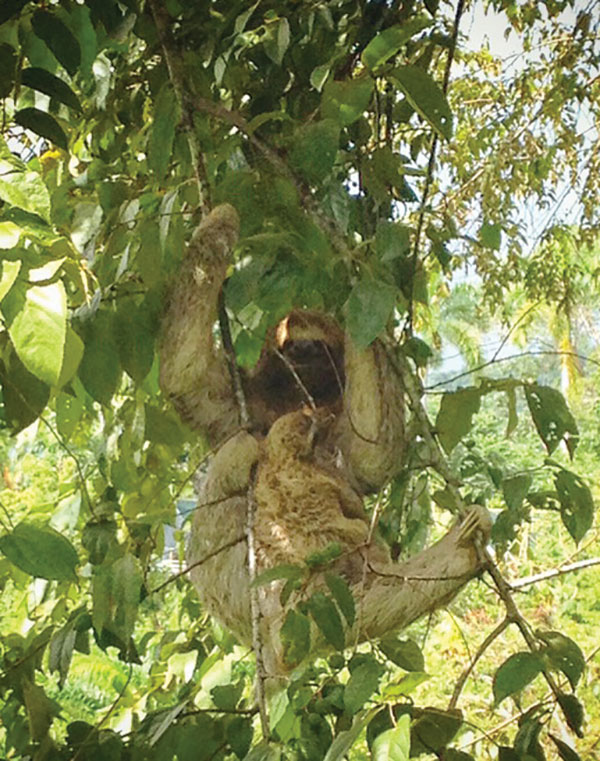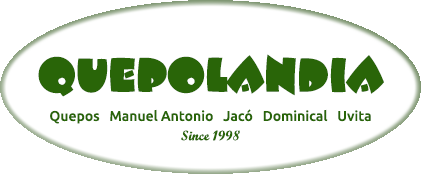The Sloth Institute – March 2017
 By Sam Trull, Sloth Director and Co-Founder of The Sloth Institute
By Sam Trull, Sloth Director and Co-Founder of The Sloth Institute
After living in Costa Rica and working for The Sloth Institute for over a year and a half now there is nowhere else I would like to be. Even after living in a tent, braving the weather, the long hours and lack of sleep for this long I do not want to go back home just yet!
I graduated with my zoology degree in 2015 and was thankfully accepted to become a volunteer research technician with The Sloth Institute (TSI). I went into the job without any prior knowledge about sloths, but now I have completely fallen in love with them!! Throughout my time with TSI there have been many highs and lows, that unfortunately just comes hand in hand when working with animals. One of my most recent highs was when we successfully reunited a baby three fingered sloth back with its mother. After a local guide contacted us about the sloth we rushed over to help and after we made sure the baby was in no immediate danger we waited. We moved as far back from the baby as we could and were completely silent. The baby started to cry for its mother and after some time the mother appeared high up and started to move towards her baby. She climbed down the tree until finally she reached her baby and they were reunited. Moments like these are the main reasons why I am still out here in Costa Rica!!

My work for TSI is predominately done at night observing our collared sloths from 6pm to 6am. With the use of VHF collar tracking technology we trek through the jungle to find them and once found we follow them wherever they may go. If you follow TSI you will probably know that Ellen and Kermie (both two-toed sloths) are our superstars who have successfully gone through the soft release program. It is such a privilege to follow them both at night to see what they get up to and just see their amazing progression fitting back into the jungle. Not only do we gain data on our collared hand raised sloths but we also collect observational data on collared wild sloths. Due to collaring the wild sloths we are then able to do comparison studies to check and see how well our hand raised sloths are doing.
 With well over 2000 clocked hours of behavioural observations it does take some effort to keep in check and I have the privilege of trying to keep it all in all in some sort of order to allow analysis. So far data analysis has been taken through simple statistical techniques which produced activity budgets upon the sloths behaviour. By comparing the activity budgets of the wild sloths against the hand raised sloths we are able to use this to see progression with our hand raised sloths and also use it within the scientific community to show the successes of our program.
With well over 2000 clocked hours of behavioural observations it does take some effort to keep in check and I have the privilege of trying to keep it all in all in some sort of order to allow analysis. So far data analysis has been taken through simple statistical techniques which produced activity budgets upon the sloths behaviour. By comparing the activity budgets of the wild sloths against the hand raised sloths we are able to use this to see progression with our hand raised sloths and also use it within the scientific community to show the successes of our program.
Sloths are such under-studied animals even though they have such a high social media profile. We are trying to change this with our research to get these animals away from their ‘cute’ and ‘cuddly’ label to giving them their scientific respect they deserve in this amazing Costa Rican ecosystem. The Sloth Institute so far has so many hours already, and daily gaining many more. We will very soon have such an extensive amount to perform more difficult statistical analyses and come to significant scientific conclusions about these beautiful under studies animals to ensure their future in Costa Rica.
About The Sloth Institute Costa Rica: www.theslothinstitutecostarica.org
The vision of The Sloth Institute Costa Rica is to enhance the well-being and conservation of sloths here and on this planet. It seeks to do this through wild and captive sloths research; education and outreach; and by collaborating with sloth rehabilitation programs to assist with the release of hand-raised orphaned sloths. TSI is located in Manuel Antonio, Costa Rica. For further information or to donate to this project, email info@theslothinstitutecostarica.org or visit www.tsi.charity.org. You can also follow us on FaceBook.
